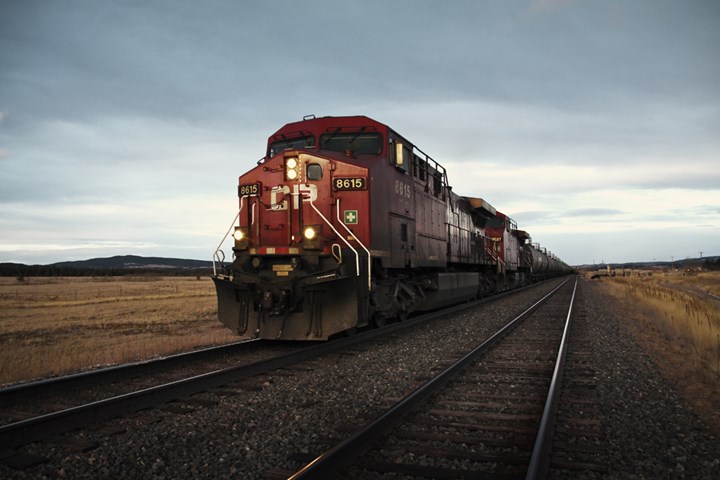Canadian Pacific announces hydrogen-powered locomotive pilot project
Line-haul locomotive will be retrofitted with hydrogen fuel cells and battery technology to drive the locomotive's electric traction motors.

Photo Credit: Canadian Pacific
(CP, Calgary, Canada) reported in Dec. 2020 that it plans to develop North America's first line-haul, hydrogen-powered locomotive. CP's Hydrogen Locomotive Program will retrofit a line-haul locomotive with hydrogen fuel cells and battery technology to drive the locomotive's electric traction motors. Once operational, CP will conduct rail service trials and qualification testing to evaluate the technology's readiness for the freight-rail sector.
“This is a globally significant project that positions CP at the leading edge of decarbonizing the freight transportation sector,” says Keith Creel, CP's president and CEO. “CP will continue to focus on finding innovative solutions to transform our operations and adapt our business, positioning CP and our industry as leaders for a sustainable future.”
The work builds on CP's prior experience with testing low-emitting locomotive technologies, including biofuels, compressed natural gas and battery-powered solutions. It should be noted that the majority of the freight locomotive fleet of all railway operators in North America consists of diesel-powered units, representing one of the industry's most significant source of greenhouse gas emissions.
CP says it has long focused on energy-saving initiatives as a core component of its sustainability practices. Since 1990, CP has improved its locomotive fuel efficiency by more than 40% through a variety of programs and technology deployments designed to improve fuel economy and reduce air emissions. The application of leading practices, emerging technologies and relationship- building across the value chain and industrial sector will remain critical as CP addresses the climate change challenge.
Related Content
-
Plant tour: Hexagon Purus, Kassel, Germany
Fully automated, Industry 4.0 line for hydrogen pressure vessels advances efficiency and versatility in small footprint for next-gen, sustainable composites production.
-
Braided thermoplastic composite H2 tanks with co-consolidated molded boss areas to fit EV battery space
BRYSON project demonstrates possible designs, automated manufacturing and low permeability concepts, including EVOH liner and novel PPA matrix.
-
Composites end markets: Pressure vessels (2024)
The market for pressure vessels used to store zero-emission fuels is rapidly growing, with ongoing developments and commercialization of Type 3, 4 and 5 tanks.



